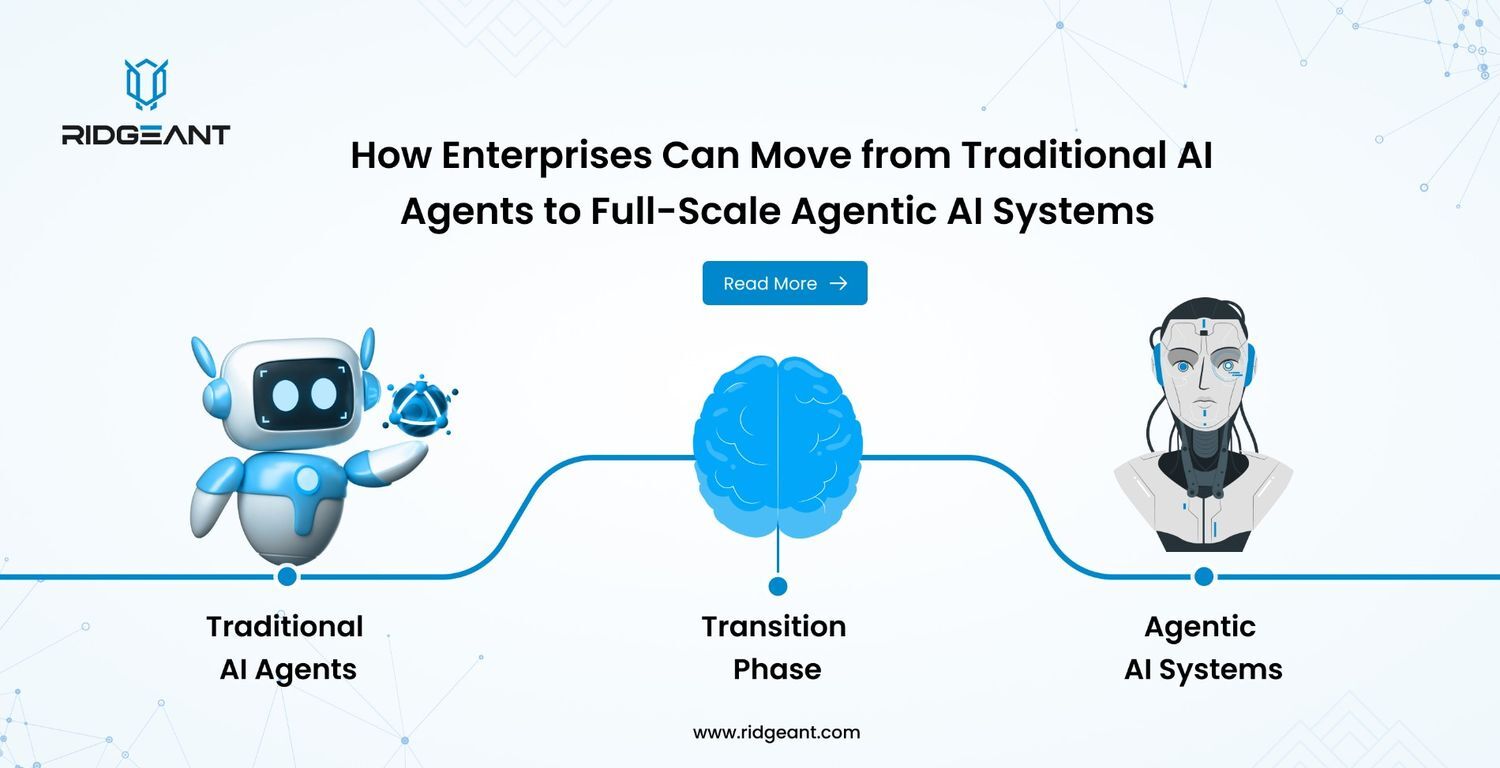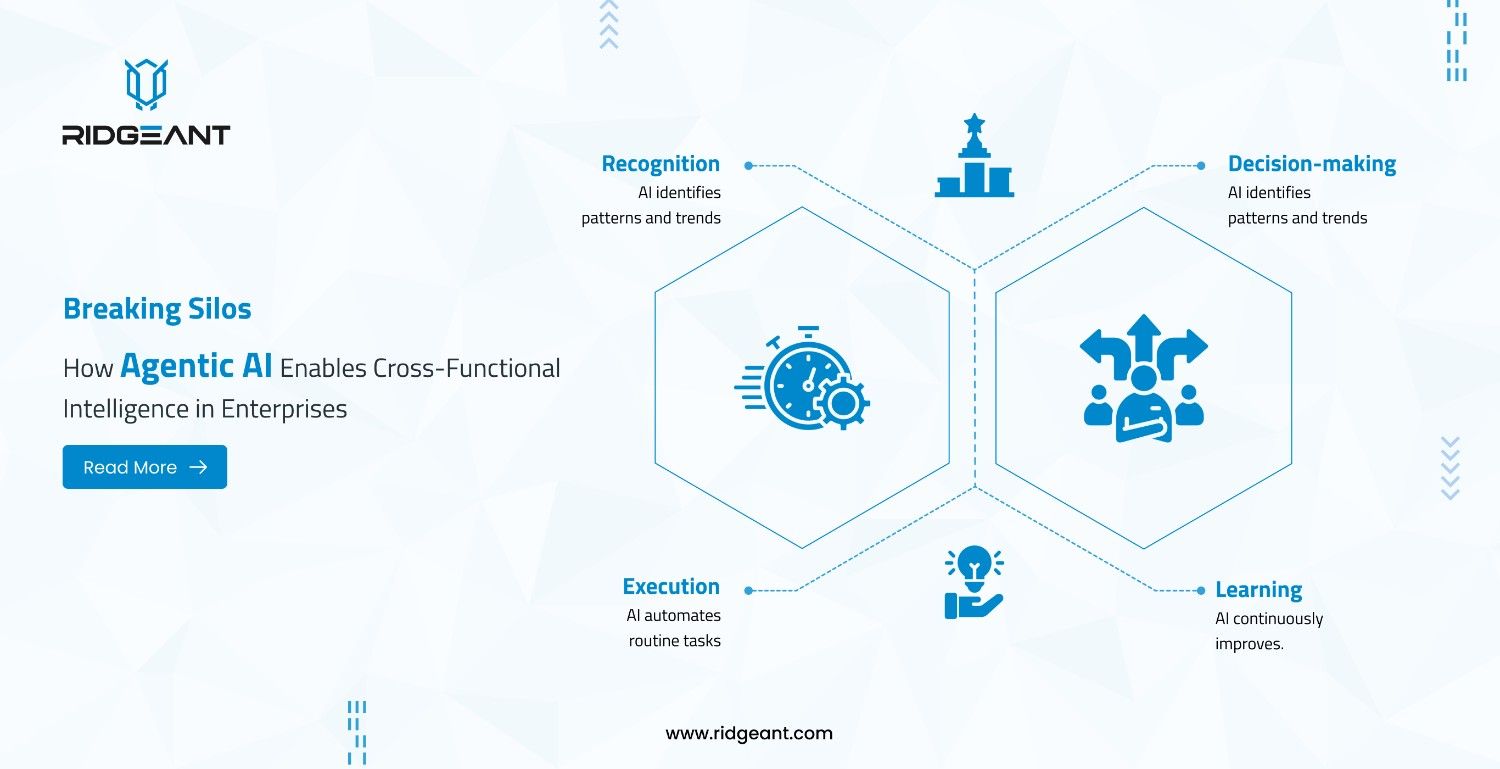
Data and AI: Transforming the Commercial Maritime and Shipping Industry
- Data Science
- August 12, 2024
- Ridgeant

The foundation of international trade, the commercial maritime sector, is experiencing major change. The growing amount of data produced by supply chains, ports, and ships presents previously unheard-of chances for efficiency and optimization. The way commercial maritime operations are carried out is going to change dramatically as Artificial Intelligence (AI) becomes a more potent tool for utilizing this data.
The Rise of AI in Maritime: A Statistical Overview
The global AI market is valued at over $196 billion, with projections indicating it will grow by over 13x in the next six years. This growth is reflective of AI’s increasing adoption across various industries, including maritime and shipping. Approximately 48% of businesses utilize some form of AI, which includes applications in data analysis and machine learning, crucial for optimizing shipping routes and logistics.
The manufacturing sector, which includes shipping logistics, stands to gain approximately $3.78 trillion from AI by 2035. This indicates the potential for substantial cost savings and revenue generation through AI integration in maritime operations.
The Role of AI in Maritime: A Deep Dive
AI, with its ability to process and analyze large datasets, is well-suited to address the challenges and capitalize on the opportunities presented by the data explosion in maritime. Here are some key areas where AI is making a significant impact:
- Predictive Maintenance:
- Preventing Equipment Failures: AI algorithms can analyze sensor data to predict equipment failures before they occur, reducing downtime and costly repairs.
- Optimizing Maintenance Schedules: AI can help optimize maintenance schedules based on equipment usage and condition, ensuring that maintenance is performed only when necessary.
- Fuel Optimization:
- Reducing Fuel Consumption: AI can analyze vessel performance data to identify opportunities for fuel efficiency improvements.
- Optimizing Routes: AI can help determine the most fuel-efficient routes based on factors such as weather conditions, currents, and vessel performance.
- Supply Chain Optimization:
- Improving Visibility: AI can provide real-time visibility into the entire supply chain, enabling better decision-making and reducing delays.
- Predicting Disruptions: AI can identify potential disruptions in the supply chain, such as port congestion or weather events, allowing for proactive measures to be taken.
- Autonomous Shipping:
- Developing Autonomous Vessels: AI is being used to develop autonomous vessels that can direct and operate without human intervention.
- Improving Safety and Efficiency: Autonomous vessels have the potential to improve safety and efficiency while reducing operating costs.
- Port Management:
- Optimizing Operations: AI can help optimize port operations by improving traffic flow, reducing congestion, and increasing efficiency.
- Predicting Demand: AI can forecast future demand for port services, enabling ports to plan and allocate resources effectively.
- Risk Management:
- Identifying Risks: AI can identify potential risks such as piracy, theft, and environmental hazards.
- Developing Mitigation Strategies: AI can help develop effective mitigation strategies to reduce the impact of these risks.
- Maritime Security:
- Detecting Anomalies: AI can detect anomalies in vessel behavior or communication patterns that may indicate suspicious activity.
- Improving Security Measures: AI can help improve maritime security by identifying vulnerabilities and developing effective countermeasures.
- Environmental Sustainability:
- Reducing Emissions: AI can help reduce emissions from maritime operations by optimizing fuel consumption and improving vessel efficiency.
- Monitoring Environmental Impact: AI can be used to monitor the environmental impact of maritime activities and identify areas for improvement.
- Customer Service:
- Improving Customer Experience: AI-powered chatbots can provide 24/7 customer support, answering inquiries and resolving issues quickly and efficiently.
- Personalizing Service: AI can personalize customer service by analyzing customer data and tailoring interactions to individual needs.
- Maritime Insurance:
- Assessing Risk: AI can assess risk more accurately, leading to more competitive insurance premiums.
- Detecting Fraud: AI can detect fraudulent insurance claims, reducing losses for insurers.
Good Read: How Does AI & ML Impact Last Mile Delivery in Logistics?
Statistical Insights
- According to a report by McKinsey, AI has the potential to increase shipping industry profitability by up to 20%.
- A study by Lloyd’s Register found that AI-powered predictive maintenance can reduce equipment downtime by up to 30%.
- The International Maritime Organization (IMO) has identified AI as a key technology for achieving its goals of sustainable shipping and reduced emissions.
Challenges and Opportunities
While AI offers significant benefits to the maritime industry, there are also challenges to be addressed:
- Data Quality: Ensuring the quality and accuracy of data is essential for effective AI applications.
- Cybersecurity: Protecting sensitive data from cyber threats is a major concern.
- Ethical Considerations: The use of AI in maritime raises ethical questions, such as the impact on jobs and the potential for bias in decision-making.
Despite these challenges, the potential benefits of AI in maritime are immense. By implementing AI, the industry can improve efficiency, reduce costs, enhance safety, and contribute to a more sustainable and efficient global supply chain.
The Future of AI in Maritime
The future of AI in maritime is bright. As AI technology continues to advance, we can expect to see even more innovative applications in the industry. AI has the potential to transform the way maritime operations are conducted, making them more efficient, sustainable, and profitable.
Additional Insights
- AI-Powered Autonomous Ships: Autonomous vessels are becoming a reality, with companies like Kongsberg and Rolls-Royce developing self-driving ships. These vessels have the potential to revolutionize maritime transportation, reducing costs, improving safety, and reducing emissions.
- AI for Maritime Security: AI is being used to detect and prevent maritime security threats, such as piracy and smuggling. AI-powered systems can analyze vessel data, satellite imagery, and other information to identify suspicious activity.
- AI for Sustainable Shipping: AI can help the maritime industry achieve its sustainability goals by optimizing fuel consumption, reducing emissions, and improving environmental performance. AI can also be used to monitor environmental impact and identify areas for improvement.
- AI for Maritime Education and Training: AI can be used to develop training programs for maritime professionals, helping them to acquire the skills needed to operate and maintain AI-powered systems.
Conclusion
AI is transforming the commercial maritime industry, providing new opportunities for innovation and growth. By utilizing data and AI, maritime companies can improve their operations, enhance customer satisfaction, and contribute to a more sustainable and efficient global supply chain.














